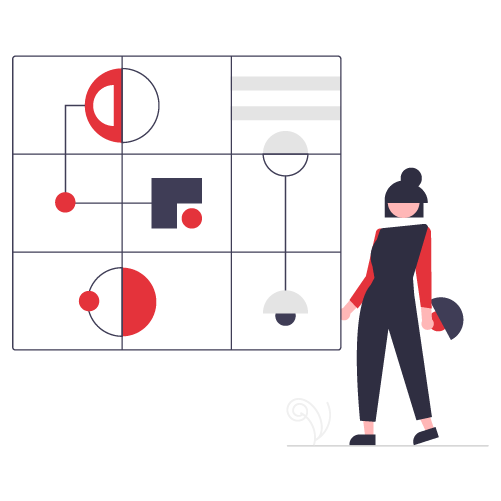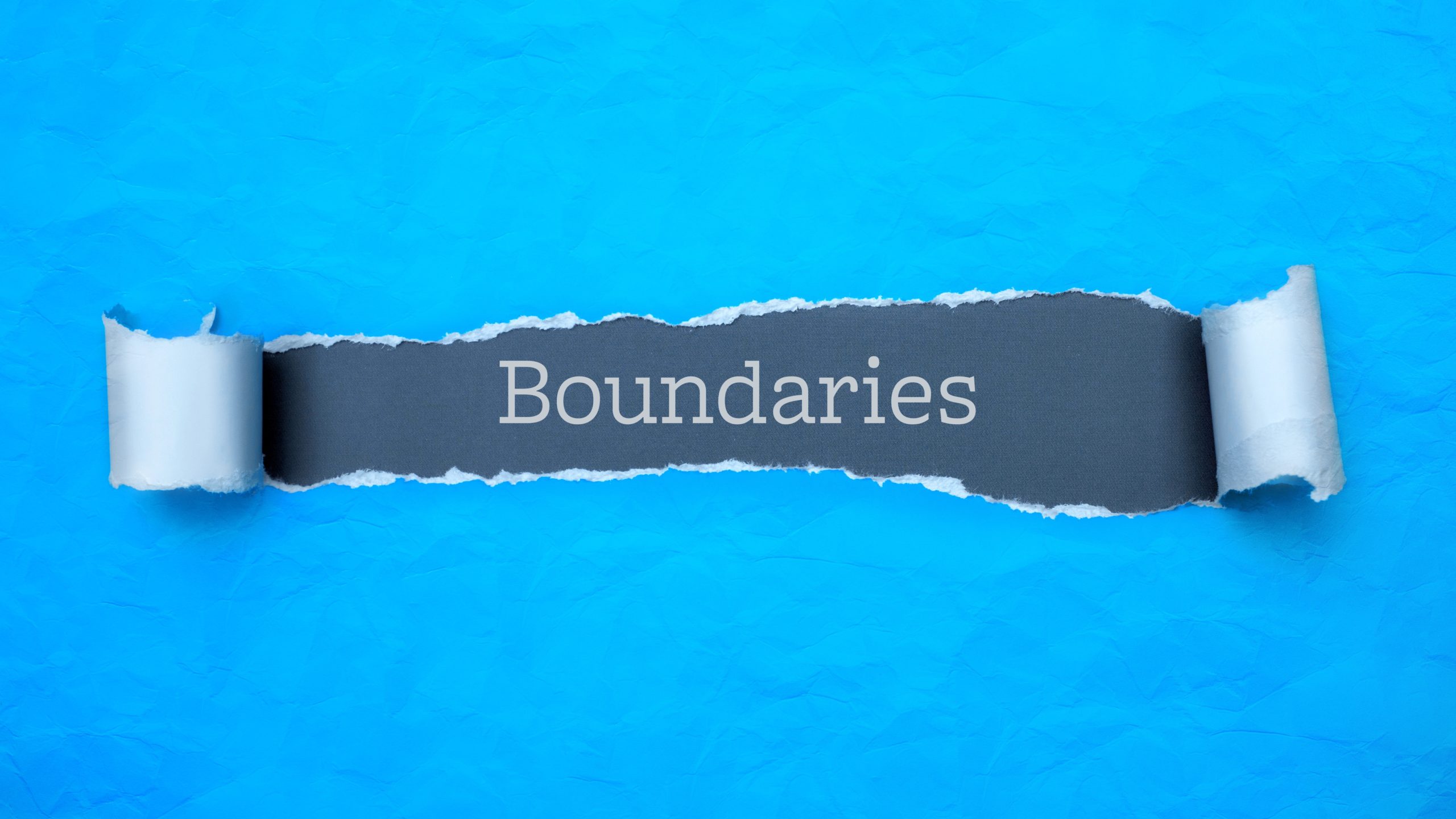
Understand boundaries and why they are important.
- A physical boundary can be defined as: a line that marks the limits of an area; a dividing line.
- Boundaries can also be defined as the limits we set with other people, which indicate what we find acceptable and unacceptable in their behavior towards us.
- Boundaries help us differentiate ourselves from someone else; they show where each person begins and ends.
Physical Boundaries
Homes are made up of walls, ceilings, floors, doors and windows. It protects the weather and elements from snow, ice, rain, extreme heat, and pollution. Things we can see and smell and other things we cannot. We have fences around our home. Fences can be tall or short, chain link or wood or concrete or even trees. They can be so severe nothing can get in (not even the good) and nothing can get out.
We drive on roads with guardrails. We ride on planes with runways. We sit in rows in theaters. These boundaries are all around and we adapt without much question. We have been trained to understand they are good for us.
As we move through life, we must define for ourselves what our physical boundaries are. We want to create fences with doorposts, so we learn to “let the good in and keep the bad out.”
It is important to discern what your physical boundaries are with all people. The more you can practice maintaining boundaries with platonic relationships the easier it will be managing boundaries in romantic relationships.

Do not be afraid to determine for yourself what feels like safe distance and touch with your friends, family members, teachers, coaches, youth leaders, and strangers you meet for the first time.
One of the best things COVID may have done was give people permission to determine what their physical boundaries are with people. We don’t have to accept handshakes, hugs, or touch if they don’t feel safe for us. It is not a one size fits all. It is also not uncommon for people who have faced physical or sexual trauma to have very different reactions to proximity and touch in a way that others may not understand or relate to. You don’t need to apologize or explain your boundaries. Just simply set them and ask people to honor them. If you are in a relationship with people who do not honor your physical boundaries they are not safe people to have in your life. Trust your gut.
Soul/Internal/Emotional Boundaries
Internal boundaries are equally important to consider, and these may be harder to discern or they may have not been safely taught to us. We could be living next door to people with completely different experiences with unseen established boundaries as a result.
Depending on our past experiences we may have formed rigid boundaries where we have closed ourselves off from the outside to protect us or we have almost no boundaries and we let people “walk all over us.” No matter our past, we must act and create healthy boundaries. We are not bound by someone else’s.
Think of these internal boundaries like circles around yourself. You can determine where people in your life fit at each level. It helps you relate in a way to people without making it all or nothing. And over time, people can move toward the inner circle and others can be pushed out. These boundaries are fluid. The closer the ring to the center, the smaller the circle is for a reason. If people show themselves to be safe, you can bring them in. If they show themselves to not be healthy for you, then you can ease away and put some safe distance.
The following is a list of things to consider within your personal boundaries:
- Feelings: They are not to be ignored or placed in charge. Your feelings are your responsibility. No one can make you feel any way you don’t allow them to.
- Attitudes/beliefs/desires: These are yours and yours alone. The more you take time to unpack them, the more likely you will feel safe to share them and abide by them.
- Behaviors: They have consequences. We have free will in this world and our actions always have a reaction.
- Choices: A common boundary problem is disowning our choices and putting the responsibility on someone else. Even when we think we don’t have a choice there is a chance for us to examine that further.
- Values: What we value determines how we make choices. If we value the approval of others we are more likely to hand over our choices to someone else.
- Thoughts: We need to take captive all of our thoughts. They can be like a runaway train. If our thought process becomes too negative we can act out despair. We may need to press pause and seek counsel from a trusted source.
- Limits: We can set limits on how we communicate, our physical proximity, how often we connect with others. If someone is behaving poorly with us, we can set limits on how close we get to them and how often we let them into our life.
- Talents: We are responsible to be good stewards for the talents and skills we have been given. We want to be sure we are not squandering our gifts but we don’t need to be taken advantage of either.
- Love/trust: Our ability to give and respond to love is our greatest gift. We need to keep healthy people in our life to help us grow and expand our trust in others and to discern when not to trust someone. To understand the counterfeit, you need to examine the authentic. So be sure to keep authentic relationships in your life. You will be much better equipped to spot people in your life that you need to stay away from.
